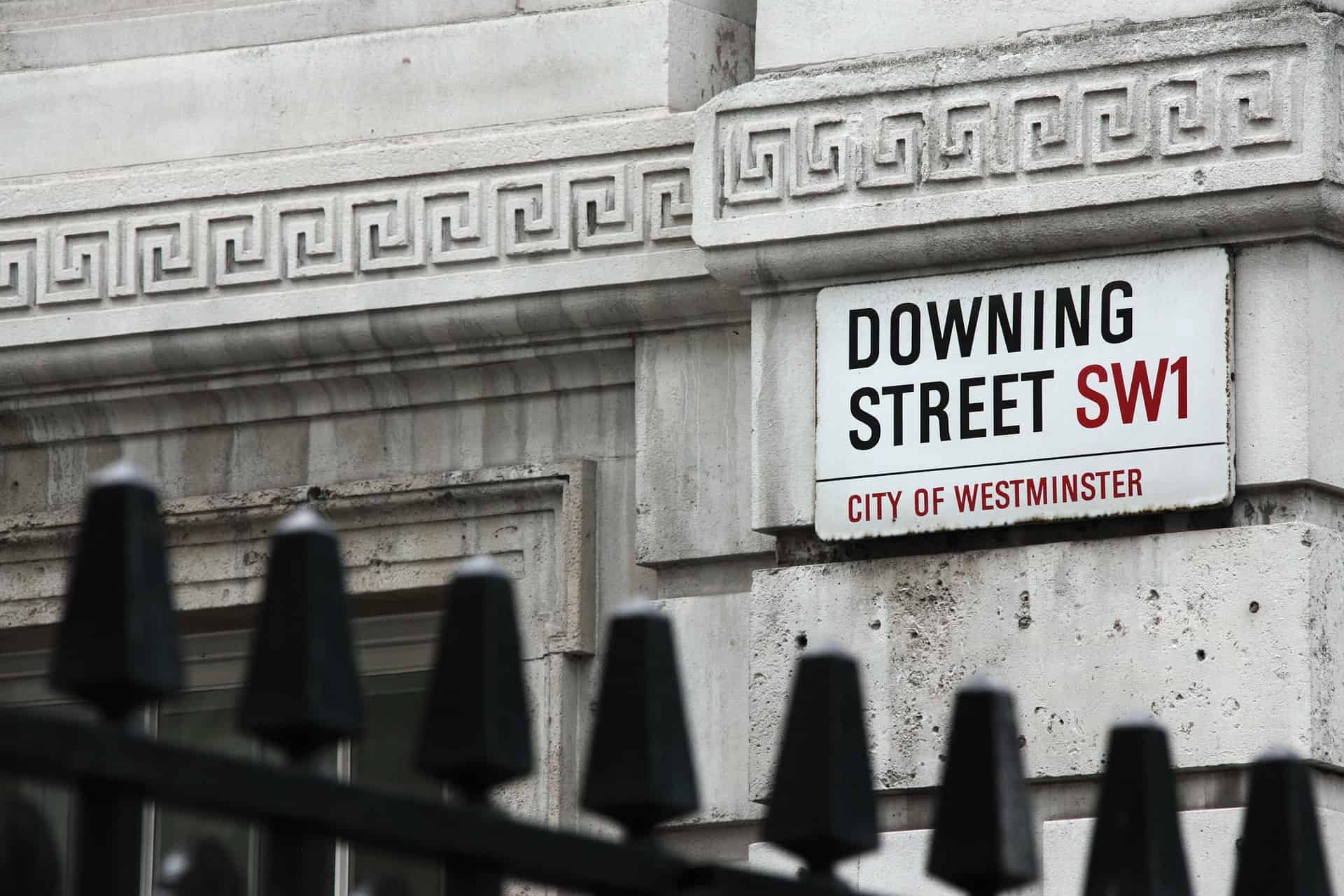New research has suggested that British businesses are more optimistic about trading with the EU than last year, despite recent stumbling blocks surrounding Brexit.
The survey, conducted annually by OFX, found that 62% of 500 business owners felt confident about doing business outside of the UK, with 46% of SMEs saying Brexit had no effect on their desire to grow through exports in the future.
Just 15% said they were more cautious about international trade.
And it’s not just a thought or feeling, the real-life figures support what SMEs are saying:
47% increase in overseas sales since last year
Average international revenues for businesses top £50,000
21% increase in foreign cash transfers in last year from British SMEs
Eurozone still more popular than commonwealth for exporters

Perhaps the most surprising stats from the research was that the Eurozone is still the preferred trading block for local businesses, despite the slow progress and uncertainty over Brexit negotiations.
45% of those polled said Western Europe is their favoured market, boosted on last year by the securing of a Brexit transition deal to help firms plan ahead in the short to medium term.
And what about US trade after the introduction of Trump’s tariffs? Interest in exporting into our American friends has plummeted, down 26% compared to last year to 36%.
Opinion was split on the value of and optimism towards Commonwealth trade in the future.
FX research director at OFX, Jake Trask said that: “More than a year after Article 50 was triggered, small businesses have learnt to live with Brexit uncertainty, and refuse to let it limit their European ambitions.
Read more: Export partnerships growing fastest with China & Switzerland for UK firms
“Despite the slow progress of Brexit negotiations, businesses are increasingly optimistic about trade with Western Europe – suggesting a desire to keep calm and carry on with international business, along with a quiet optimism that all will be well.”
SMEs around Britain require more support

What businesses outside of the capital say they need most is international trade consultancy. 50% of companies in Wales said there wasn’t enough export support, whilst only 40% of businesses in Scotland said they felt confident about selling overseas.
But with demand for the British brand so high on the continent, and across the world, small businesses around the UK have so much growth potential if they can bridge the gap between UK-base and international customer.
One growing area in which SMEs are succeeding in this area is e-commerce, with many local firms selling fashion, homewares and software across the world.
One such small firm, menswear brand Tails, does just that. Co-director Joshua Williams noted that: “Today, we make almost all our sales online, with more than half our customers based outside the UK. Local heritage and family history are both central to our brand, and we’re lucky that the internet has made it possible to grow our business abroad without losing our Welsh roots.
Read more: Businesses react to the week in Brexit
“We have sometimes had to travel for specialist guidance, but it’s a minor inconvenience when compared to the huge advantages and quality of life we gain by running our business in Penarth.”
British businesses should leverage their unique heritage and get out there into the world to seek growth opportunities. 53% of local exporting firms say that their ‘Britishness’ is a valuable selling point on the international stage, especially within US, New Zealand, Australian and Russian markets.
If export advice is needed, companies like us at Go Exporting are on-hand to support exporting plans from planning and research to execution.
Find out more about how Go Exporting can help your business here.
They say there’s never a dull week in politics, but it’ll take one heck of a week to top the one we’ve had so far.
Within the last seven days, we’ve had the Chequers agreement, an agreed-upon way forward within the Cabinet. But just days later and we’re listening to a new Brexit secretary and foreign secretary too.
Dominic Raab’s views on human rights and workers rights are well documented, indeed in his own book, but early signs are that business groups are impressed following early meetings with the new man at the spearhead of negotiating the UK’s exit from the EU.
The British Chambers of Commerce, Institute of Directors, Confederation of British Industry and EEF had all woken up the day previous preparing for a meeting with David Davis. But just 24-hours later and it was the new Brexit secretary in front of them discussing the future of the country.
Stephen Martin, director general of the Institute of Directors, said: “It was encouraging to meet the new secretary of state within hours of his appointment, it demonstrates a commitment to engaging with the business community as we approach crunch time in these negotiations.
“The meeting was constructive and we are pleased he is keen to pursue a Brexit that is receptive to the needs of business.
“We are now keen to see the imminent white paper build on the Chequers statement, and look forward to working with the Brexit secretary as negotiations proceed with renewed impetus.”
Another present at the meeting said that: “It was really positive that a new Cabinet secretary kept his commitment with business leaders on his first full day in the role. That is an important statement of intent, in terms of willingness to meet with business and getting the right Brexit deal.”
“The sense was very much one of pragmatism and being signed up to the Chequers approach.”
London more confident in Brexit

New figures published today (Tuesday 10th) also highlight the growing confidence in Brexit from the business community, despite the very recent upheaval in government.
The figures are, for the first time since the referendum result, neutral. The balance of companies in London stating they are optimistic rose 10 points to zero, according to the London Chamber of Commerce and Industry.
Read more: End date published for ‘backstop’ EU trade plan post-Brexit
Bigger businesses were more confident though, with SMEs still more concerned than not.
And it’s not just businesses which have reported positive outlooks of late. Only last week, BoE governor Mark Carney stated his ‘greater confidence’ that the UK economy will bounce back from a sluggish first quarter, signalling a likely rate rise in the not-so-distant future, but also stimulating a jump in sterling’s value as a result of his speech.
“The incoming data have given me greater confidence that the softness of UK activity in the first quarter was largely due to the weather, not the economic climate,” Carney said, before firing a warning to Trump over trade tariffs.
So, it’s been even by the UK’s political and Brexit standards a crazy week so far, but that doesn’t necessarily mean it’s been a bad one from a business standpoint. Brexit should get moving now the cabinet has a plan in principle, and a warning that deviating from the plan will no longer be tolerated. Perhaps Raab will spend more than the four hours Davis spent directly negotiating with Michel Barnier in the coming weeks alone.
And here’s hoping the new foreign secretary doesn’t have the same ‘f–k business’ attitude as the last one.
A new study has found that Britain’s fastest-growing export partners are Switzerland and China.
The research, commissioned by Wyelands Bank, found that countries in the Asian Pacific dominate the growth charts with Switzerland topping the chart.
Overall, China leads in terms of projected growth with an additional $886m in trade expected on-top of $24.6bn last year, with growth rate forecasts level with Switzerland at 3.6% over the next three years.
Other nations where high export growth is expected through to 2021 include Saudi Arabia, Hong Kong and South Korea.
| Rank (fastest growing) | Country | Growth rate a year to 2021 | Value in 2017 (US$) | Project growth (value US$) | |||||
| 1 | Switzerland | 3.6 per cent | $23.6bn | $850m | |||||
| 2 | China | 3.6 per cent | $24.6bn | $886m | |||||
| 3 | Saudi Arabia | 2.9 per cent | $7.8bn | $226m | |||||
| 4 | Hong Kong | 1.2 per cent | $9.1bn | $109m | |||||
| 5 | South Korea | 1.1 per cent | $5.9bn | $65m | |||||
| Total | $71bn | $2.1bn |
Exports in the top five export growth partnership nations totalled $71bn last year with an additional combined $2.1bn expected to add to that figure, which includes selling both products and exporting services.
UK firms already focusing outside of EU block?
Whilst Europe remains the UK’s primary export partner, totalling 46%, the insight that the Asia Pacific marketplace is growing for British businesses indicates a potentially positive trend ahead of the UK’s exit from the EU.
Increasing trade with what are currently regions which account for a small amount of Britain’s total export value is one of the key aims after Brexit with new trade deals being negotiated. What this research suggests is that Britain’s businesses are already doing it, although further stimulus is certainly required with the second highest expectant growth market, South America, forecast to generate just 0.5% export value growth by 2021.
Read more: Strong appetite for British food and drink overseas
Commenting on the research, CEO of Wyelands Bank, Iain Hunter said that: “Behind these headline economic figures, trade is important because it creates jobs. It has helped to contribute to the UK’s record employment levels, providing financial security for millions of families up and down the country.
“However, in order for businesses to succeed, they need working capital. It is only by providing better access to funding that we can support businesses to trade, grow and create jobs.”
It seems to be one of the longest running international jokes – Britain has bad food. That thinking may be true with tourists, but for international businesses, demand for British food and beverages is stronger than ever. In fact, global appetite for British food and drink has continued to strengthen by over 10% in under 12 months.
This is according to research by GS1 UK as part of its ‘Brits Abroad: UK Food & Drink Exports 2018’ study. The headline stats from the research are that export of British food and beverages was up 12% in the year to November 2017, with alcohol exports up a very impressive 16%.
And with the British food and drink export market valued at around £22bn, this research indicates an additional £2.6bn in transactions.
A focus on export growth
GS1 UK’s research also indicated that exporting currently comprises a larger proportion of businesses’ overall output and activity than it did half a decade ago, with returns to match. Revenue from exports grew 4% to 15% compared to 2013 for those surveyed, showcasing how a focus on developing export markets can add significant growth to overall takings.
Perhaps the most recognised UK beverage firm taking full advantage of international trade opportunities and marketability of a ‘made in Britain’ tag is Fever-Tree which sells to 60 buyers internationally.
And despite Brexit looming, confidence in exporting remains defiantly positive. In fact, food and drink manufacturers expect export sales to account for nearly a quarter of their business within the next five years. Just one in three said they were concerned that trade with EU partners would stutter as a result of any negotiated trade deal.
Read more: British business beyond the Customs Union
CEO of GS1 UK, Gary Lynch commented that: “British produce remains a byword for excellence around the world and our food and drink is exported to the four corners of the globe.
“With official Government figures showing that £22bn of it was sent overseas in 2017, there is clearly a lasting taste for British products and our members have optimistic expectations for the coming years.
“Whisky and salmon are very much our export staples, but the thirst for our beer and gin also continues to intensify.”
(Photo: Robert Sharp / English PEN)
An end date for a proposed ‘backstop’ plan for trade with the EU following Brexit has been published following a day of political turmoil at Number 10 after crunch meetings between David Davis and Theresa May.
The backstop plan puts in place a proposal for a temporary customs arrangement between the UK and the EU following Brexit in March next year which would see the UK match EU trade tariffs in order to avoid a hard Irish border.
Issues arose in Downing Street on Wednesday after the initial proposals did not include an end-date to such an arrangement, something which many Brexiteers within the party – including Brexit Secretary Davis – were against as it could, in theory, mean the backstop continuing indefinitely until a more permanent arrangement was met.
Given the current pace of negotiations, it’s anyone’s guess as to how long that could have taken.
And despite a hectic day on Thursday in which rumours were circulating in the press that Davis would resign if an end date was not included, the hard work is still to be done as the EU still has to agree to the proposals.
In fact, later on Thursday, EU chief negotiator Michel Barnier set his criteria on which the UK’s proposal would be judged, with one EU Brexit negotiator pointing out that ‘a backstop that is temporary is not a backstop – unless a definitive arrangement is the same as the backstop’.
Despite this, the government is confident a permanent future customs arrangement can be agreed upon and put in place by December 2021 at the latest.
Internal politics aside, what’s the big backstop issue?

Two of the biggest issues facing the UK as it leaves the many arrangements and treaties of EU membership is that of borders and trade.
The customs union which all EU states are currently members of allows tariff-free trade and minimal border checks between nations. And whilst leaving the customs union may see the UK subject to similar trading tariffs as the rest of the world doing business with EU member states (negotiations on this front could go on well into the agreed post-Brexit transition period), the most urgent issue is that of a hard border between Northern and the Republic of Ireland.
Read more: British business beyond the customs union
The EU has already created its own backstop proposal which would effectively keep Northern Ireland within the customs union, but this would essentially create a border between Northern Ireland and the rest of the UK in itself – so a counterproposal was created.
This backup counter backstop would see the entire UK aligned with the customs union, should it be required, and match EU tariffs to avoid border checks.
For Brexiteers, having no end date assigned to such agreement was not an option as it would limit the UK’s ability to forge its own independent trade policy, whilst also still residing under the jurisdiction of the European Court of Justice. A potential indefinite delay on the independence those who voted for Brexit wanted and a potentially damaging result for the country as a whole.
Read more: Business department unprepared for Brexit?
So what next on the Brexit rollercoaster? MPs will have another chance to debate the Withdrawal Bill in the Commons, followed by two increasingly vital EU summits later this month and mid-October – the latter seen as the ultimate deadline for the agreement of the divorce terms.
US tariffs on imported steel and aluminium have come into force, affecting EU, Canadian and Mexican markets.
The tariffs, which were originally announced in March this year but delayed in implementation for some US allies, officially came into effect from 1st June with US commerce secretary Wilbur Ross confirming a 25% tariff on steel and 10% on aluminium imports from the EU.
So why has the US President introduced such tariffs? Criticised by some as ‘protectionist’, Trump himself notes a national security rationale behind the call whilst also looking to uphold his presidential campaign promise to restore manufacturing jobs to decaying American steel towns across the so-called ‘rust belt’’ of The States.
In under two decades, some 90,000 American jobs have been lost in the steel and aluminium industries alone as the US made less and imported more. The trade deficit for the US stands at around one to four and the nation currently stands as the world’s biggest importer of steel.
So what will the impact be on UK and EU exporters? Whilst the effect the tariffs will have on local jobs is unclear, the amount of new tax being paid out will be substantial. UK steel exports stand around £360m to the US every year, whilst from the EU, that figure stands at £5.6bn.
And whilst the UK government has said it will ‘continue to work closely with the EU and US administration to achieve a permanent exemption’ and protect UK workers, there will no doubt be some disappointment and worried faces in Downing Street as the UK looks to etch out closer trade ties and some degree of preferential treatment from what will be an increasingly vital trading partner post-Brexit.
Will Trump’s tariffs work against the US in the long-run?

On the face of it, introducing tariffs on steel and aluminium imports seems a clever if not brash move. With such a large trade deficit in this field, the US can expect to rake in hundreds of millions in additional taxes each year before American firms start to source locally once more. The move will also bode well with Trump’s core voters. In the short-term, increasing prices of imported goods will make local products cheaper in comparison and more attractive as an alternative.
In the long-run though, things might not work out quite the way Trump would hope.
First, there’s the retaliation from hacked-off trade partners, including the EU, Canada and Mexico, who are all threatening counter-tariffs in retaliation.
This means prices for both imported and exported goods will rise, whilst local producers are likely to also increase their prices whilst still undercutting now taxed imported alternatives. Prices rise across the board, which eventually trickle down to the consumer, whilst quality dips too through lack of innovation and reduced efficiency.
Read more: British business beyond the customs union
UK Steel Director Gareth Stace suggested the President’s move has without a doubt started an international trade war.
“It is difficult to see what good can come of these tariffs. US steel consumers are already reporting price increases and supply chain disruption and with some half-billion dollars of steel exported from the UK to the US last year, UK steel producers are going to be hit hard.
“As stated time and time again, the only sustainable solution to the root cause of the issue, global overcapacity in steel production, is multilateral discussions and action through established international channels.”
However, we can’t officially call Trump’s tariffs the start of a trade war without the first retaliation, which came almost instantly through friendly neighbours Canada slapping £9.6bn in tariffs on the US.
Meanwhile, the EU is planning to re-balance the marketplace by introducing their own new import taxes on American products including orange juice, denim, motorbikes and even peanut butter.
And so it begins…
Earlier this month we wrote about a statement from the Public Accounts Committee which noted its ‘grave concern’ about the lack of Brexit-readiness The Department for Business, Energy and Industry Strategy (BEIS) appears to showcase in the run-up to leaving the EU.
Their statement went as far as to suggest that the BEIS was apparently ‘operating in a parallel universe where urgency is an abstract concept with no bearing on the Brexit process’.
On top of that, the CBI and IoD have made public their desire for the UK to stay in the customs union and maintain close trade-links with the EU respectively.
Director of the CBI, General Carolyn Fairbairn said in a speech that: “There may come a day when the opportunity to fully set independent trade policies outweighs the value of a customs union with the EU … But that day hasn’t yet arrived.”
So why is it taking so long to agree on some sort of customs arrangement with the EU or at least a set of basic principles for a future deal?
‘Playing the long game’
As John Ashcroft writes in his Saturday Economist piece, Prime Minister Theresa May has to play the long game, partly due to the divisions within her own cabinet.
“The Prime Minister has set up two working groups to develop the options for the Customs Union deal. One team will work on the “Customs Partnership” deal, the other team will work on the “Max-Fac” proposal. The brief to “work towards a joint solution”. Some chance. Robot wars would have a better chance of resolving the conflict peacefully.
“Germany’s EU commissioner Günther Oettinger played down the chances of progress. “Madame May is weak. Boris Johnson has the same hairdo as Trump” he explained. Details of his own interpretation of the gravity trade model were omitted. “We can only hope that sensible citizens will put Madame May on the path to a clever Brexit”.”
The government are after something of a ‘clever Brexit’, but as Ashcroft points out, this is in itself a contradiction.
Read more: Business Department unprepared for Brexit?
Sure, there’s unlikely to be a cliff-edge Brexit in which Britain takes a step into the complete unknown. But there will be some losers, and it could just be that the majority (51.9% in fact) underestimated the impact leaving the likes of the single market will have on the UK economy and its businesses.
As Fairbairn concluded whilst noting alternative trade arrangements around the world, things are likely to get more difficult for those firms that are trading overseas, whatever sort of Brexit is achieved.
“Currently, to trade with the EU, many U.K. businesses need only complete a simple form. But with a Canada-style agreement U.K. firms would face customs declarations, which means filling out a 12-page form for each batch of goods sent to customers,” Fairbairn will say, adding that the Canada deal is “patchy” on services trade.
“Put simply, a Canada deal is an ocean away from what we need.”
What all this means for British businesses
It could mean everything, or it could mean nothing at all. We just don’t know yet. We almost have to wait and see, but that doesn’t mean companies shouldn’t start planning regardless.
As just one example, many EU based SMEs actually prefer to make large purchases from EU members outside of their country as there is no VAT on the invoice, as compared to a local company that must charge the tax.
This has a real benefit for their cash flow. Ok, you can claim it back, but in these post-financial crisis times some governments are taking up to 12 months to make the refund! This benefit will most likely disappear and with it some of your export business.
That is unless, as noted above, you start planning now. Read more on business after Brexit here.
A report published last month has cast serious doubt on how Brexit-ready a key government body is.
According to MPs from the Public Accounts Committee, The Department for Business, Energy and Industrial Strategy (BEIS) has made ‘virtually no attempt’ to prioritise ahead of Britain leaving the EU as it moves from a state of planning to implementation.
According to the PAC, members are gravely concerned that the BEIS is not as prepared for Brexit as it should be.
Meg Hillier, chair of the committee said that: “We have grave concerns about this apparent complacency, compounded by the lack of transparency on the department’s progress with what in some cases will be critical projects.
“Sensitivities around negotiations with the EU must not be used as an excuse to keep taxpayers and Parliament in the dark. We urge the government to provide us with a swift update on the issues raised in our report.”
Read more: IoD reiterates importance of post-Brexit trading with Europe
She continued: “The Department for Business, Energy & Industrial Strategy appears to be operating in a parallel universe where urgency is an abstract concept with no bearing on the Brexit process.
“The department is responsible for around a fifth of the work streams the government must complete as the UK leaves the EU. It is an extremely important, challenging and time-sensitive workload.
“Yet the department told us it had not re-prioritised its overall programme of work, had not begun procurement for around a dozen essential digital systems and could not provide vital information about its workforce.”
In the report published by the PAC, it suggested that the Cabinet Office and Department for Exiting the EU needs to carry out an immediate review of planned processes and a draft legislative timeline to navigate Britain’s exit for the EU.
Read more: 5 potentially lucrative export markets
However, a spokesman for the BEIS said that extra investment and staff recruitment has already begun to help with the undoubted challenges ahead.
“Along with the whole of government, BEIS is focused on getting the best deal for the UK and ensuring a smooth transition for businesses, consumers and workers.
“Since this report was written, BEIS has received £185m of extra funding to help deliver a successful Brexit by employing an increased number of staff on our Europe work, identifying the most pressing legislative challenges and remaining ahead of schedule by recruiting high-calibre staff to ensure we prepare thoroughly and effect.”
The Institute of Directors has reiterated the importance of agreeing trade deals within the EU following Brexit, ahead of focusing on forging agreements further afield.
The warning was issued to the government by the IoD as international trade secretary, Liam Fox, looks to strike more trade deals with the rest of the world – a key benefit for Brexiteers in leaving the European Union.
With over 30,000 members, the IoD polled almost 800 company bosses and reported that the EU has provided stronger growth for exporting British firms than both North America and Asia since 2016, suggesting to ministers that trade needs to be boosted both with European neighbours and worldwide to achieve ambitions of creating a ‘global Britain’.
The research also showed that more British companies are exporting goods, up 7% over the last five years, despite the referendum result and invoking of Article 50.
Allie Renison of the IoD said: “Going global is as much about opportunities in Europe as it is further afield, and this should be reflected in how the government shapes post-Brexit Britain”, whilst also noting that ministers must ‘get real about trade, and fast’.
Despite business concerns over leaving the EU and single market, in particular, many company heads are optimistic over future trade prospects and international sales opportunities. One such study, carried out by HSBC, found that a third of firms surveyed predicted the outcome of Brexit would be positive for British business.
Head of commercial banking at HSBC, Amanda Murphy, suggested that firms are undeterred by future post-EU uncertainty and businesses ‘clearly aim to capitalise on the cheaper pound and rising demand in key markets’ to boost international sales.
Business beginning to shift focus to issues at home
And despite many questions still awaiting answers when it comes to business and Brexit, it appears UK forms have warmed enough to the prospect that attentions are flickering back to matters closer to home.
A survey by Deloitte which surveyed 106 company CFOs, including 25 of the FTSE 100, found that sluggish economic growth was now a bigger concern.
The CFOs assigned scored Brexit as a 56/100 risk towards their business, whilst weak demand at home scored 57/100.
Read more: 5 potentially lucrative export markets
Eroding spending power of consumers at home due to an inflation spike, plus market concern as household names including Toys R Us and Maplin entered administration, are two of the key contributors, as well as weak productivity growth and potential labour shortages.
However, the economy has shown signs of recovery in Q1 2018 with wage growth, including through the National Minimum and Living Wage, whilst inflation eases.
In fact, the same survey found that one-fifth of companies felt more optimistic about future prospects than they did in Q4 2017.









